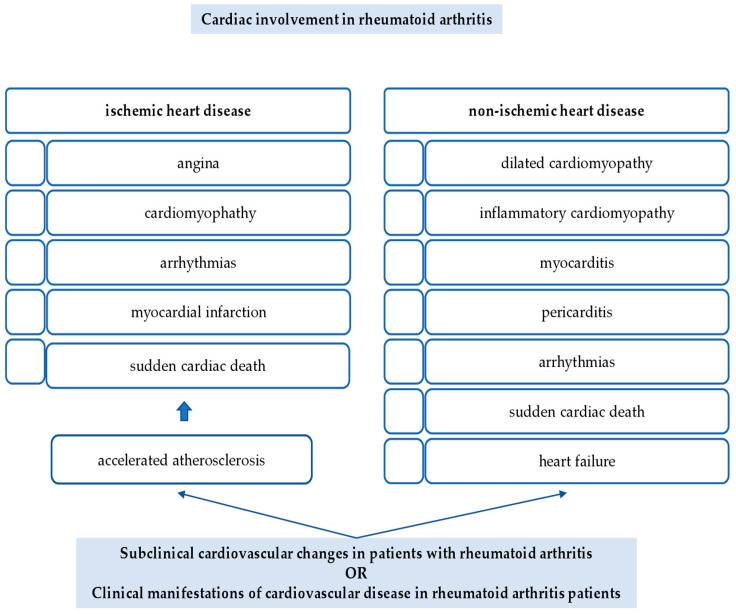Figure 1.
Cardiac involvement in rheumatoid arthritis. There are two main aspects of cardiovascular (CV) involvement in rheumatoid arthritis (RA): ischemic heart disease (IHD) and non-IHD. Clinical expression of ischemic heart disease is directly connected with the degree of ischemia, angina, cardiomyopathy, or arrhythmias in a less acute type and myocardial infarction (MI) and sudden cardiac death (SCD) in a more acute one. The most prevalent type of non-IHD is cardiomyopathy, dilated or inflammatory. Myocarditis may be diffuse necrotizing or granulomatous. Another pathological process is pericarditis, responsible for an important accumulation of fluid that may transform into a life-threatening state, cardiac tamponade, with an acute loss of ventricular function as a result of cardiogenic shock. A separate cardiac involvement is arrhythmia. It is well-known that individuals with RA have an increased CV morbidity and mortality rate, for example, the risk for SCD. Patients with RA have an increased risk for HF.

